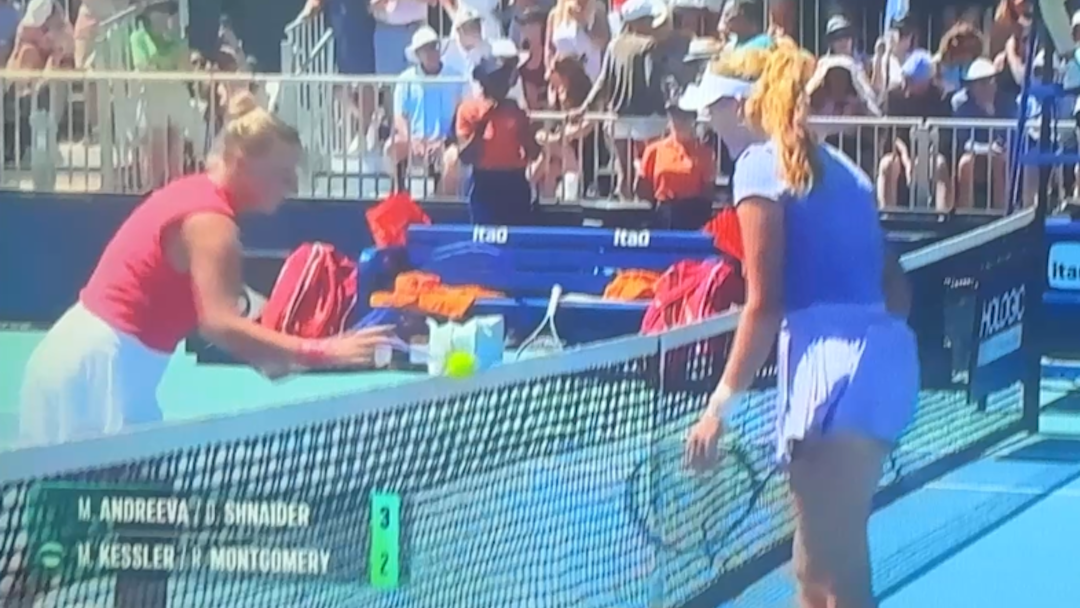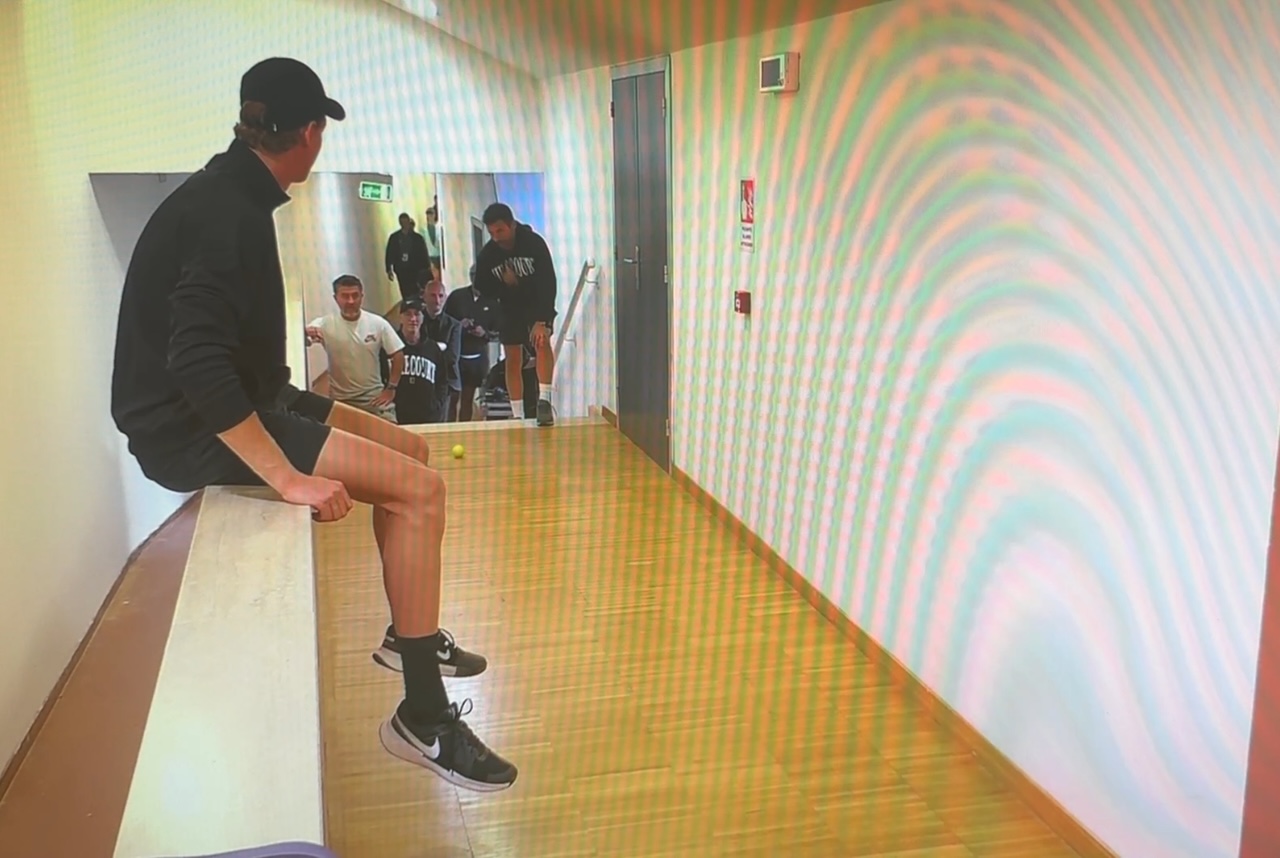The tennis pickleball crisis hit close to home over the past couple of weeks. A spat over court availability quickly spiraled out of control at the Wichita Falls Country Club. I have been contemplating the potential rationales and motivations behind what ultimately transpired ever since. It is probably way too early to be writing about this topic. However, I think there are urgent lessons that the tennis ecosystem needs to learn ASAP. I will get to those points later this weekend.
Backstory
As I have previously mentioned on this site, the Trophy Husband and I joined the WFCC a little over two years ago. It was a necessity because the public tennis centers in the city were operated by an absentee management company and not open during the hours that would be regarded as reasonable and customary in any other municipality. Consequently, the active tennis players in the city congregated at the club.
Racquet Sports at War
A few weeks ago, there was a flashpoint that arguably should have been a non-incident. The way things escalated out of control suggests that pre-existing tensions were present. It is also possible that the drama was intentionally created for ulterior motives. In any case, there has been a cataclysmic shift in the tennis scene in Wichita Falls.
The unfortunate series of events was triggered when a highly influential pickleball player showed up without a court reservation on a rainy day. She was incensed to discover that tennis lessons were being conducted on the club’s three covered courts and demanded that the dual-use court be immediately cleared for pickleball play.
When the tennis pro refused to stop the lessons in progress, the pickleball player went up to the new general manager of the club who interceded on her behalf. What subsequently ensued was a series of club directives and policies that cut tennis court availability which was already too tight to meet full demand. It also increased pickleball court capacity beyond what is needed based on current participation levels.
Aftermath
Tennis players are accustomed to the necessity of reserving a court for play. In fact, during my own membership at the club, I was not always able to reserve a court exactly when desired. There were even some days when I couldn’t get a court at all. Typically, I resolved to plan better the next time that happens.
For whatever reason, many of the WFCC pickleball members didn’t embrace the idea of making reservations. The model of access that allowed shared courts to be reserved for either pickleball or tennis did not resonate with that community. Following the flashpoint incident, the pickleball players demanded and were ultimately rewarded with a dedicated open-play covered pickleball court, and tennis was prohibited in that space. The current pickleball participation does not justify the elimination of tennis in favor of pickleball.
The cultural divide between tennis and pickleball was a primary contributor to the insanity. However, in the country club setting, a secondary powerful cultural influence is also in play. In fact, it is possible that a similar incident could have played out as a tennis vs tennis scenario.
Social stratification is real in the country club setting. The WFCC has equity/stockholding members that have more privileges and influence than the various other membership types. While pickleball was gasoline to the fire, the original incident was very much rooted in the sense of entitlement by some of the equity members, particularly those that were either directly on or influential to the club’s Board of Directors. They act like they own the club because they do.
Money, Money, Money
Very shortly before this recent flashpoint, the Board of Directors herded the club members into the ballroom to disclose that the WFCC was in financial distress. The Board insinuated that it was the fault of the recently departed general manager and comptroller. The membership was told to prepare for rate hikes, the potential elimination of some tiers of memberships, and increased assessments to the equity members. The urgent need to attract new members to the club was also discussed.
With that background, it is possible that the recent policy decisions from the Board of Directors were a clumsy attempt to squeeze the Director of Tennis at the club. Perhaps the drama was to prep the battlefield for a reduced compensation package. I also think there is a real possibility that they were trying to get him to leave. If so, they succeeded because that is exactly what happened.
The official club communication that notified the WFCC members that the Director of Tennis had departed insinuated that he resigned with no advance notice. I have seen the resignation letter, and that simply isn’t the case. It was the club that made the decision to part ways immediately.
Collateral Damage
Unfortunately, the assorted anti-tennis policies weren’t just impacting the Director of Tennis, but also all of the assistant pros who rely on lessons and drills for a significant part of their income. The entire pro shop staff also resigned. Curiously enough, that included the pickleball pro as well. The club was literally left with no one to unlock the door to the pro shop.
A tennis town hall was conducted last week to correct “misperceptions” about the recent staffing changes. It was similar to the financial town hall. However, this time all the blame was placed squarely on the shoulders of the former Tennis Director. He was openly accused of negotiating in poor faith because he registered an LLC three days before he tendered his resignation. Rather than striking a conciliatory tone to the remaining tennis membership, speakers that advocated for tennis at that meeting were literally told to “sit down and shut up.”
We were left with no other choice than to resign our membership. By the unofficial count, we were the 21st family to do so. In fact, the number of people who had already submitted their resignations prior to the tennis town hall was vastly understated at that meeting. Transparency isn’t exactly the hallmark of country club administration. Ironically, more transparency was exactly what was previously promised during the financial town hall.
Wichita Falls Wins
The City of Wichita Falls has already awarded an operating contract to the former club Director of Tennis. The staff that left along with him will still do the same job but will have access to many more courts. Additionally, many of the people who actually play tennis in the city have committed to the public facility. The dark days of tennis in Wichita Falls are over.
Zero Sum Games Have Losers
The big losers of this saga are the remnant members of the WFCC who were uninvolved and likely oblivious to all the racquet sports drama. I am sure no one anticipated that immediately after the financial town hall that the Board of Directors would immediately decide that the revenues from tennis and the dues from over 21 families were optional. The remaining members will be shouldering the increased operating deficit on top of the original financial issues.
This episode has influenced how I view the WFCC Board of Directors in general. When the financial challenges were originally announced, I pretty much accepted the claims at face value. After witnessing the insinuations and less than truthful communication during the tennis crisis, I am starting to view the financial situation in a different light. The Board of Directors is literally responsible for providing oversight and accountability for the club. They also set the budget. This episode should raise questions about whether the Board of Directors is acting as good stewards of the club’s resources.
Finishing Shots
In any case, this is not my problem anymore. However, there are still lessons that tennis needs to learn from this episode. I will likely get to that on Sunday.
Tomorrow’s post will feature a story that came to my ears after I relayed the absurd details of the situation at the WFCC to a friend. It encapsulates the cultural issues with pickleball that threaten tennis in a nutshell.




Many of the private and public tennis facilities in my area of Florida have either willingly (to boost revenues) or begrudgingly (members were insistent) made some tennis courts multi-use for pickleball. At an all-clay court facility I noticed a court stripped of the top layer to allow for pickleball. As a tennis player I’m not thrilled with the idea of fewer available courts but I understand the financial benefit of the fad that is hula hooping… err, pickleball that may help tennis facilities and keep tennis/pickleball professionals employed. At least people are losing calories and not their savings (crypto) with this particular fad.
I belong to Lifetime Athletic which turned 2 of 8 tennis courts to pball. They made 4 pball courts on 1 T court and 2 on the other so everyone is happy.